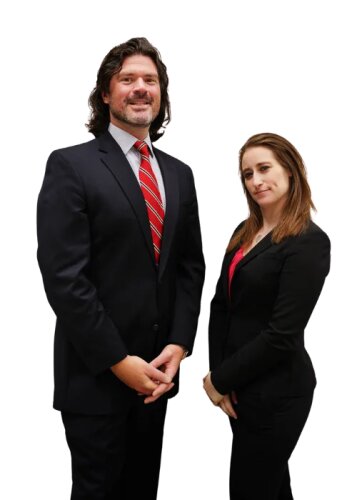Best Asylum Lawyers in New York City
Share your needs with us, get contacted by law firms.
Free. Takes 2 min.
List of the best lawyers in New York City, United States
1. About Asylum Law in New York City, United States
Asylum in the United States provides protection for individuals who fear persecution in their home country because of race, religion, nationality, membership in a particular social group, or political opinion. This protection can allow you to stay in the United States and eventually seek lawful permanent residence if you meet the criteria.
In New York City, applicants typically navigate federal asylum processes rather than city specific rights. There are two main paths: affirmative asylum, pursued with the U.S. Citizenship and Immigration Services (USCIS), and defensive asylum, pursued in immigration court before an immigration judge. Both paths require careful documentation, credible testimonies, and legal guidance to maximize success. USCIS Asylum and EOIR - Immigration Court provide the official framework for these processes.
New York City residents often access local support networks alongside federal procedures. City agencies and nonprofit providers can help with eligibility screening, legal referrals, language access, and integration supports while you pursue asylum. For example, NYC Mayor's Office of Immigrant Affairs (MOIA) coordinates resources for immigrants in the city. MOIA resources and state programs aim to reduce barriers to access for asylum seekers.
2. Why You May Need a Lawyer
- You're starting the affirmative asylum process after arrival in New York City. An attorney can help prepare Form I-589, gather supporting documents, and craft a credible personal narrative for the interview with USCIS. A misstep here can lead to denial and future immigration consequences. In NYC, legal counsel with asylum experience improves chances of presenting a complete case.
- You face removal proceedings in immigration court in New York City. If you are placed in proceedings, you will need defense before an immigration judge. A lawyer can develop a defensive asylum strategy, cross examine witnesses, and file motions, including applications for relief under withholding of removal or protection under the Convention Against Torture (CAT).
- You missed the one-year filing deadline for asylum and need an exception. Certain changed circumstances or extraordinary conditions may qualify you for a deadline waiver. An attorney can assess eligibility and prepare the necessary evidence to support a late filing.
- Your asylum claim involves complex evidence or multiple forms of relief. If you also seek relief such as family-based adjustment after asylum or alternative protections, a lawyer can coordinate filings, translations, and timelines to avoid gaps that jeopardize your case.
- You require ongoing help after an asylum grant. After protection is granted, you may pursue lawful permanent residence. A lawyer can guide you through I-485 and related steps, including securing work authorization while your case progresses.
3. Local Laws Overview
Asylum is primarily a federal matter, governed by statutes and regulations rather than city ordinances. New York City residents nevertheless benefit from state and city supports that aid access to asylum processes and related services.
- 8 U.S.C. § 1158 - Asylum. This is the federal statute establishing the eligibility criteria and framework for asylum in the United States. It has long governed who may qualify for protection and how claims are processed and reviewed. U.S. Code - §1158
- 8 C.F.R. § 208 - Asylum Procedures. This federal regulation implements the process for asylum applications, credible fear screenings, and related procedures that asylum seekers in New York City and nationwide must follow. CFR Title 8, Part 208
- Driver's License Access and Privacy Act (Green Light Law) - New York State. This state law allows eligible individuals, including certain non-citizens, to obtain a standard driver license, facilitating mobility and access to services while pursuing asylum. New York DMV - Driver License for Undocumented Immigrants
4. Frequently Asked Questions
What is asylum in the United States?
Asylum is a protection status for individuals who fear persecution or have a well-founded fear of persecution if they return to their home country. It is available under federal law and requires meeting specific eligibility criteria.
How do I start the asylum process in NYC?
Begin with an affirmative application to USCIS by filing Form I-589. The process continues with documentation, interviews, and potential appeals or accommodations based on your circumstances.
When should I hire a lawyer for asylum?
Hire a lawyer as soon as you can after deciding to pursue asylum. An attorney can help you prepare the I-589, gather evidence, and plan for interviews or court hearings.
Where do I file for asylum in New York City?
Affirmative asylum filings go to USCIS. If you are placed in removal proceedings, you will appear before an immigration judge in the EOIR system in or near New York City.
Why do I need a lawyer for credible fear interviews?
Credible fear interviews determine eligibility to continue in the asylum process. A lawyer ensures you present a coherent, complete narrative and understand interview questions and sanctions.
Can I apply for asylum if I entered the U.S. illegally?
Yes, many entrants pursue asylum despite irregular entry. However, entry method can affect options and timing, and some circumstances may require alternative relief or waivers.
Should I apply for asylum in NYC if I am somewhere else?
You can apply wherever you are located, but local resources, translators, and legal assistance in New York City can be especially helpful if you plan to remain there during proceedings.
Do I need to prove persecution to qualify for asylum?
You must demonstrate a credible risk of persecution or meet other protected grounds. A lawyer helps organize evidence for credibility and legal standards.
How much does an asylum attorney cost in NYC?
Costs vary by firm and complexity, but many NYC lawyers offer initial consultations. Some nonprofit organizations provide low-cost or pro bono services to eligible clients.
How long does the asylum process take in NYC?
Timelines vary widely depending on the path (affirmative vs defensive), caseloads, and backlogs. Federal agencies and courts in New York City can experience multi-month to multi-year delays.
Do I have to pay fees for asylum or are there waivers?
Most asylum filings do not require a separate filing fee for the I-589, but related filings and adjustments can incur costs. Fee waivers or fee assistance may be available in some cases through legal aid programs.
What is the difference between affirmative and defensive asylum?
Affirmative asylum is filed directly with USCIS and pursued without a prior removal order. Defensive asylum is raised in immigration court to halt removal and seek protection.
5. Additional Resources
- U.S. Citizenship and Immigration Services (USCIS) - Asylum provides official guidance on eligibility, forms, and general process for asylum in the United States. USCIS Asylum
- Executive Office for Immigration Review (EOIR) offers information on immigration court procedures, hearings, and appeals relevant to defensive asylum in New York City. EOIR
- New York City Mayor's Office of Immigrant Affairs (MOIA) provides resources, referrals, and guidance for immigrant communities in New York City, including asylum-related services. MOIA - Immigrant Resources
6. Next Steps
- Identify a New York City based attorney or legal counselor who specializes in asylum and has experience with both affirmative and defensive pathways. Aim for a consultation within 1-3 weeks of deciding to pursue asylum.
- Gather essential documents early. Collect passport copies, birth certificates, any prior immigration records, travel documents, and evidence of persecution or fear. Start assembling timelines and country condition reports relevant to your claim.
- Schedule an initial consultation to review your case, deadlines, and the most appropriate path. Ask about fees, expected timelines, and communication expectations. In NYC, many firms offer contingency or sliding scale options for eligible clients.
- Decide on the pathway with your lawyer - affirmative asylum with USCIS or defensive asylum in immigration court. Your choice may depend on your location, evidence, and personal circumstances.
- Prepare for credible fear interviews or immigration court hearings with your attorney. Practice questions, ensure translations are accurate, and organize witness or expert letters if needed.
- File the I-589 or other relevant forms with the help of your lawyer. Keep copies, monitor delivery confirmations, and manage deadlines with a calendar or case management tool.
- Maintain ongoing eligibility for benefits and services in NYC. Explore city and state programs that support asylum seekers, including housing, education, and language services.
Lawzana helps you find the best lawyers and law firms in New York City through a curated and pre-screened list of qualified legal professionals. Our platform offers rankings and detailed profiles of attorneys and law firms, allowing you to compare based on practice areas, including Asylum, experience, and client feedback.
Each profile includes a description of the firm's areas of practice, client reviews, team members and partners, year of establishment, spoken languages, office locations, contact information, social media presence, and any published articles or resources. Most firms on our platform speak English and are experienced in both local and international legal matters.
Get a quote from top-rated law firms in New York City, United States — quickly, securely, and without unnecessary hassle.
Disclaimer:
The information provided on this page is for general informational purposes only and does not constitute legal advice. While we strive to ensure the accuracy and relevance of the content, legal information may change over time, and interpretations of the law can vary. You should always consult with a qualified legal professional for advice specific to your situation.
We disclaim all liability for actions taken or not taken based on the content of this page. If you believe any information is incorrect or outdated, please contact us, and we will review and update it where appropriate.












